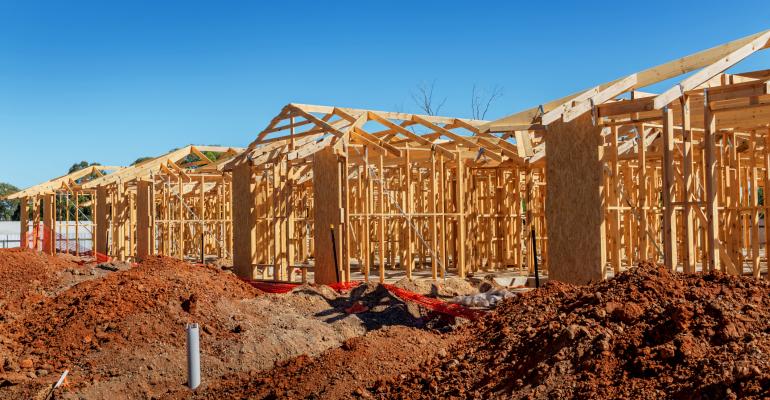(Bloomberg View)—Renters can finally breathe a sigh of relief: The nation's decade-long shift away from homeownership -- which had made renting exorbitantly expensive -- appears to be over. This will be great for builders and real-estate agents, but not so much for prospective home buyers.
Why do I think we've witnessed a generational peak in renting? For one, the data point in that direction. In the year through June, the number of home-owning households increased by 1.26 million, according to the Census Bureau. Renting households, by contrast, declined for the first time since 2004:
As a result, the nation's homeownership rate is seeing its first year-over-year gains in more than a decade. This doesn't appear to be a statistical fluke: The increases are happening across all age groups and ethnicities.
The timing makes sense demographically. From 2015 to 2025, the population aged 30 to 44 -- the period when people are most likely to get married, have kids and buy houses -- is projected to grow by 8 million while the 20-to-29 age group shrinks slightly. This is similar to what happened during the housing boom of 1995 to 2005 and the opposite of 2005 to 2015, when population growth was concentrated in 20-to-29-year-olds, the age group most likely to rent (as John Burns Real Estate Consulting has noted).
A tightening employment market will also make more people able to buy homes. Consider the hurdle of providing two years of tax returns for a conventional mortgage application. Now that taxes for 2016 have been filed, people can use their returns from 2015 and 2016, when the unemployment rate averaged 5.1 percent, compared with 5.7 percent for 2014 and 2015. Several months from now, prospective home-buyers will be able to use 2017 returns with even better income and employment records. Meanwhile, bankruptcies related to the financial crisis will keep dropping off credit reports.
The shift should be good for renters, easing the intense demand that has given landlords the upper hand. Prospective buyers, on the other hand, will find themselves chasing a tightening market. Since the peak in homeownership 12 years ago, a big chunk of the U.S. housing stock -- nearly 10 million homes -- has switched to rentals. If you think good homes are too expensive and hard to find now, prepare for much worse.
To accommodate the demand, builders will need to put up a lot more new homes than they have over the past decade. Much of the construction will happen in the southeast, from Maryland to Texas, where more than half of single family homes tend to be built. This will particularly benefit the suburbs and exurbs of large metro areas that have seen outsized population growth in the current economic expansion. That's where land is cheap, even though commutes to job centers might be longer.
In short, the winners will be existing homeowners, builders, construction workers, the real estate industry, suburbs and urban renters fed up with rising rents. Among the losers: some urban communities hoping for a revitalization that at this point might never come -- and apartment landlords, for whom few tears will be shed.
This column does not necessarily reflect the opinion of the editorial board or Bloomberg LP and its owners.
Conor Sen is a Bloomberg View columnist. He is a portfolio manager for New River Investments in Atlanta and has been a contributor to the Atlantic and Business Insider.
To contact the author of this story: Conor Sen at [email protected] To contact the editor responsible for this story: Mark Whitehouse at [email protected]
For more columns from Bloomberg View, visit Bloomberg view
COPYRIGHT
© 2017 Bloomberg L.P

